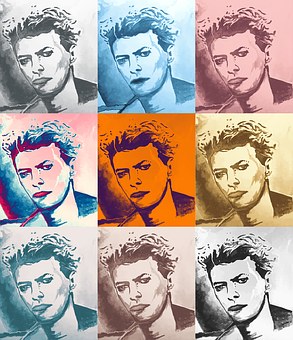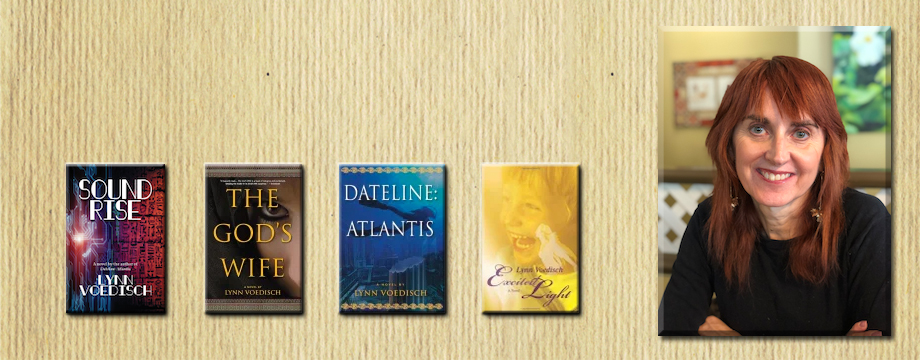It may seem odd for a fantasy writer to be fashioning an ode to rock star/actor/artist David Bowie. But who was Bowie but a fantasy character? He changed personas as often as many people change attire. He was never content to stay in one phase of artistic or musical development, but kept pushing for more and for…ch..ch…changes. As a lover of fantasy and magic, nothing enchanted or intrigued me more.
In all of Bowie’s transformations and new stances, his different moods always seemed to catch me at a significant time in my life, making him all the more worthy of examining.
When I was a kid listening to the mainstream Beatles, Bowie caught my ear singing “Space Oddity,” (“ground control to Major Tom…”). I had just seen Stanley Kubrick’s monolithic “2001: A Space Oddity,” and I caught the way Dowie was both having fun with the grandiosity of the film, but also retaining the ultimate mystery of the cinematic ending. Major Tom is lost adrift in space just the Starman lands on Jupiter for a terrifying transmogrification. What did it all mean? Did it matter? It was magical and inspiring and I loved it.
Years later, I was just as intrigued with his role as an alien in Nicolas Roeg’s “The Man Who Fell to Earth,” an arty flick about a desperate being who comes to Earth to save his dying planet. Bowie appears to Earthlings as a brilliant inventor who creates technology that makes him wildly rich. But for all his brilliance, he fails to bring water back to the people on his fading planet. Bowie’s character is left on Earth, out of touch and out of time, as his planet dies. It was so mystical and beautiful that it made me cry. I think in that role, Bowie showed me how truly affecting he could be.
I’m sorry to say that I lost track a bit of Bowie during his “Ziggy Stardust and the Spiders From Mars” years. I even was in London during the glam-rock phase (when “The Rocky Horror Show” was the biggest thing on the stage.) I happened to be in my big-shot jazz and intellectual phase then. (Eye roll, please.) I had to catch Ziggy on the rebound years later when I was listening to records I had missed in the college years.
But Bowie grabbed my attention big-time when Ziggy died and he morphed into the powerhouse rocker of the “Rebel Rebel” era. The song (“hot tramp, I love you so”) affected my burst-out-in

to-the-world outlook at the time, along with “Suffragette City,” and “Diamond Dogs.” It was hot, pounding rock that drove a party as well as the Rolling Stones.
Then the rocker was gone and a character known as “the thin white duke” stepped on stage. He was a different from Ziggy as you could imagine—a suave, well-groomed man in a while suit, dripping with ennui. I, trying to bring up a toddler as a single parent, could appreciate the mood. So, I sopped up the manner and distance of the duke, but looked for Bowie’s next change.
While he was going through those moods, Bowie recorded such pop smashes as “Fame” (with John Lennon), “Heroes” (with Brian Eno, anticipating the fall of the Berlin wall), and “Fashion” (with Robert Fripp). These just kept us spinning on the dance floor waiting for more. (Interestingly, “Heroes” is now topping the charts, when it only rose to No. 47 when it was released in 1977).
By the time Bowie recorded “Let’s Dance” (“put on your red shoes and dance the blues”) he was a bona fide American rock star, minus the crazy hair, odd costumes, and heavy backstory of the past. In his short, combed blonde hair, a t-shirt and pants, he just stood for who he was—a great singer and musical stylist. And he looked forever young. It was as if nothing could change David Bowie now.
Yet, I could tell he was becoming moodier and more mature with 2013’s “Where are We Now?” but nothing prepared me for his sudden, and final, role change of Jan. 9. Although there were rumors in New York of Bowie having cancer, and he was opening a show he co-wrote called, eerily, “Lazarus” (the man Jesus was said to have risen from the dead). When I was in New York last, all my attention was on the musical “Hamilton.” Bowie eluded my vision.
I haven’t been able to get a hold of Bowie’s last album, “Blackstar,” which is sold out everywhere (and my Internet streaming situation isn’t good). But I have heard parts of the work. Surely the biggest clue he gave us about his next transformation were the opening words to the song “Lazarus” (“Look at me. I’m in heaven.”)
It’s the last role I ever would have considered for the biggest fantasy figure I’ve ever seen in my existence. David Bowie now in the afterlife.

